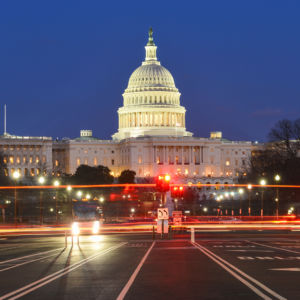A group of unlikely allies joined together Thursday to pressure Senate leaders into extending a ban on Internet access taxes across the U.S.
“Our organizations have a variety of missions and represent Americans from all walks of life and on all sides of the political spectrum, and it’s very rare that we agree on policy or work together in a unified manner,” groups including Americans for Tax Reform, the U.S. Chamber of Commerce, National Black Caucus of State Legislators, Independent Women’s Forum and League of United Latin American Citizens wrote to Senate leaders Thursday.
“But this issue is different. We support ITFA [Internet Tax Freedom Act] because […] a permanent ban on taxing access to the Internet is critical to all Americans and the future of our overall economy.”
More than 40 conservative, minority, women’s and tech groups signed the letter urging Republican Senate Majority Leader Mitch McConnell and Democratic Minority Leader Harry Reid to support permanently extending the ban first enacted in 1998.
“In the 17 years since Congress first passed a ban on Internet access taxes, the Internet has evolved from a luxury into a necessity of modern life,” the groups wrote. “In particular, ITFA plays a critical role in helping to keep the cost of Internet access affordable. It has protected most consumers from paying state and local taxes on their Internet access services.”
The bill prohibits state and local governments from taxing access to bundled Internet services like cable broadband and DSL.
“Without ITFA, it is likely these services would be taxed at the high rates of tax imposed on traditional telecommunication services, which often are more than double the rate of tax imposed on other goods and services,” the groups wrote.
In an op-ed for Forbes this week, American Consumer Institute CEO Steve Pociask wrote if the moratorium were to expire, Americans could see taxes on Internet access rise to a rate similar to that already applied to wireless services, which rose to a record 18 percent of the average wireless customer’s bill in 2015 — almost three times the general sales tax rate — according to the Tax Foundation.
It would also slow the the deployment of broadband to rural, underserved and poor regions of the country, where the FCC has identified cost as the largest barrier to wider adoption.
Congress has temporarily extended the ban seven times since 1998, often in year-end budget deals like last year’s omnibus spending package. Now lawmakers are seeking to extend the ban indefinitely via the ITFA, currently a part of the Trade Facilitation and Trade Enforcement Act customs bill pending in the upper chamber.
“After decades of progress in connecting more Americans to the Internet, the lack of a permanent ban on Internet access taxes could reverse this progress,” the groups wrote. “Numerous studies continue to show that cost remains an obstacle to Internet access and, if taxes on the Internet go up, even fewer people will be able to afford to go online. This would impede our nation’s long held goal of universal Internet access.”
The ban would close a loophole in the 1998 law that allowed states including Texas, Wisconsin, Ohio, New Mexico, Hawaii, North Dakota and South Dakota, already taxing Internet access at the time of passage to continue doing so.
A bipartisan collection of lawmakers including Tennessee Republican Sen. Lamar Alexander, Illinois Democratic Sen. Dick Durbin and Reid support tying the access ban to a bill allowing states to impose sales taxes on Internet purchases from out-of-state retailers, which others oppose, arguing the two measures should be tackled separately.
“Americans’ broadband bills shouldn’t be used as bargaining chips by Senators who want to impose online sales taxes,” Tom Struble, policy counsel at TechFreedom — one of the letter signatories — said in a statement Thursday.
“For 17 years, the Internet access tax ban has helped encourage broadband adoption and investment. If Senators want an online sales tax, then pass it on the merits — but handcuffing a broadband tax with sales tax is irresponsible.”
The House passed the permanent moratorium as part of the customs bill last year and lobbed it to the Senate, where a close vote is expected.
“If we are to make Internet use ubiquitous, then we must have the certainty of a permanent ITFA,” Multicultural Media, Telecom and Internet Council CEO Kim Keenan said in a statement Thursday.
“We should accept nothing less than policies that make the Internet affordable for all Americans. This is the only path to digital equality.”

